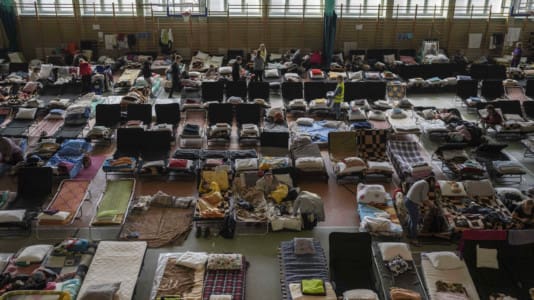The cost of living crisis in the Czech Republic is rising rapidly with the growth of inflation to almost 13 percent almost certainly not yet over.
Due to the recovery from the pandemic and the Russian invasion, most economies are suffering, but Czechia is an exception. Almost nowhere are prices rising as fast as in this country — only the Baltics are a little worse off. There are several reasons for this.
“High inflation in the Czech Republic consists of several parts,” Unicredit Bank’s chief economist Pavel Sobíšek explained. “One is the lowest unemployment rate in Europe, combined with wasteful fiscal policies that have pushed inflation up before the pandemic.
“The common characteristic of the countries of Eastern Europe is a larger share of energy and food in the market basket compared to wealthier countries, which leads to higher inflation,” he added.
According to economist Radim Dohnal from the Capitalinked company, the cause is wage inflation in recent years due to low unemployment and energy prices in recent months, which is related to the low share of renewable energy sources in the Czech Republic.
It is the situation in the field of energy and energy prices that is critical in the Czech Republic. More and more households have a problem with high gas and electricity payments. In many European countries, governments have intervened and introduced various regulations or capped prices. Slovakia, for example, has frozen electricity prices for people for three years. The Czech government regulates only the price for energy transmission and distribution. On the contrary, Slovakia also adjusts the cost of the commodity itself or power electricity.
Czechia is a great exporter of electricity, which it produces cheaply, but repurchasing it from the European Energy Exchange in Leipzig will make it more expensive for consumers. At the end of last year, several countries, including France and Spain, submitted a proposal to the European Commission to amend the directive on the functioning of the internal electricity market. Under the reform, the final customer should pay the price for electricity that reflects the cost of the energy mix in his country. However, Czechia was not among the countries that came up with the proposal.
“I see the change in electricity pricing as a particular topic. It needs to be addressed, not only for households but also for companies,” Sobíšek claimed. “The solution must therefore be at the EU level. Otherwise, there would be a risk of the collapse of the pan-European electricity market, which has operated without major problems for 15 years,” he added.
“If Czechia did not want to participate in the European Energy Exchange, then the country could hardly expect in the case of a production outage, neighboring countries will sell electricity at lower than prohibitive prices,” said Dohnal. “Of course, the bigger and more efficient the market, the lower the costs. I recommend looking at electricity prices in the EU before 1996 when the interconnections for electricity overflows in Europe were weaker.”
Higher inflation is also caused by the fact that the government of Petr Fiala has so far rejected any blanket regulations in general. According to Sobíšek, this could reduce inflation temporarily.






